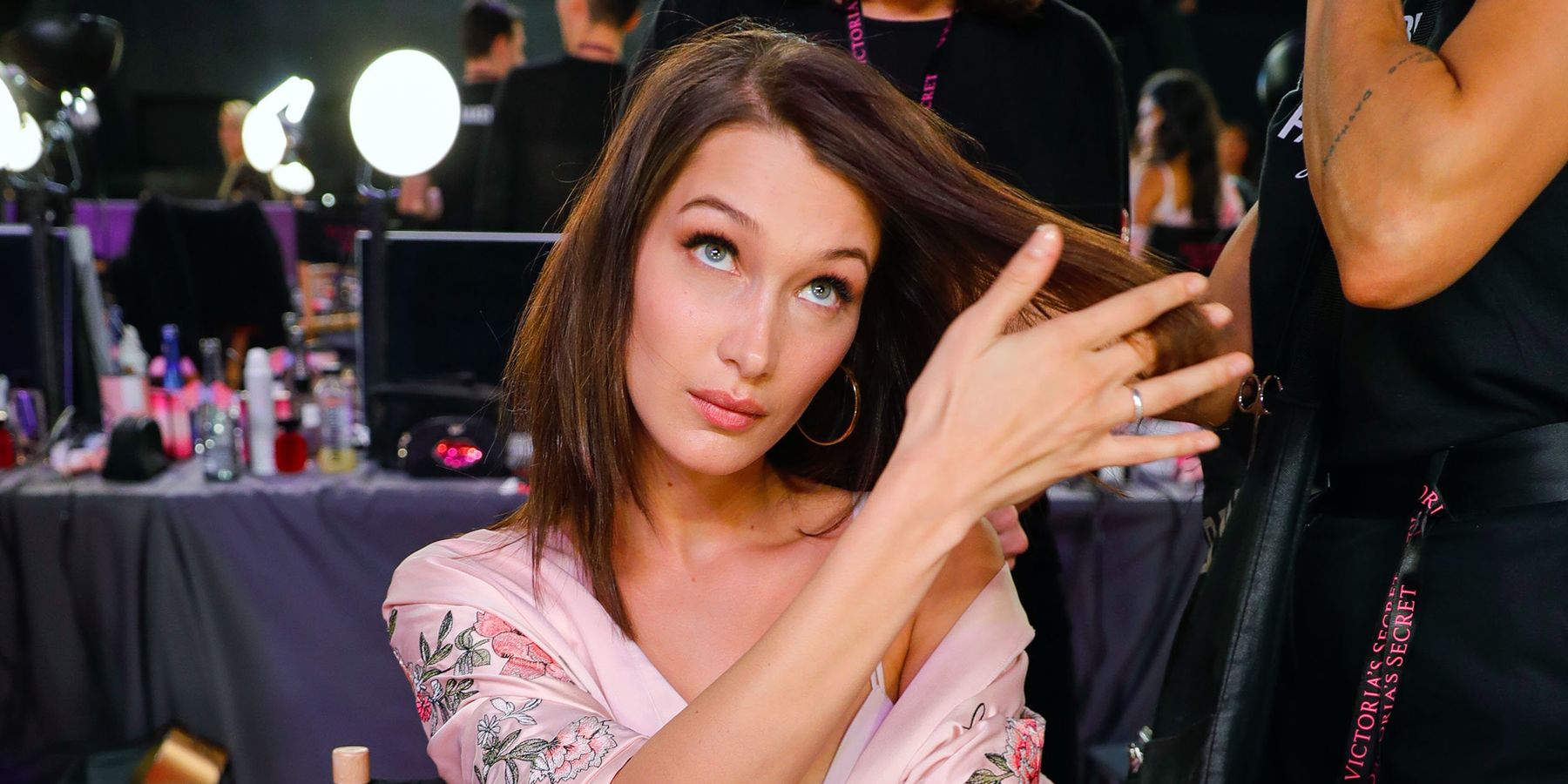
Our hair is our primary accessory — it's possible to change our entire aesthetic with just a new style, which is why the prospect of hair loss is among the most daunting of
Related | The Secret to Rihanna's Hair Is a $6 Walgreens Product
Baldness is caused by a descreased blood supply around the bulb of hair follicles. While science is yet to stumble on a full-blown cure, there are steps you can take to either stop it before it starts and quickly put baldness on notice if you're knee-deep in hair loss. Celebrity stylist Paul Labrecque and Plastic Surgeon and RealSelf Chief Medical Officer Lara Devgan have compiled their top tips for keeping every strand strong, healthy and, well, on your head.
Don't Panic, Work Out Why
There are many causes of hair loss. One thing you'll want to address right away is whether or not your hair is breaking. For example, did you receive a chemical treatment recently, relaxers, bleach and perms done in excess can cause a lot of damage, or have you been putting a lot of stress on your strands?
Pinpointing the cause is the only effective way in actually treating the issue. If a medicine or drug is the issue there is very little one can do if a side effect from taking it is hair loss. Obviously if the medication is a necessity there won't be much you can do until if you're off it. But if the reason is due to a thyroid issue, once this is resolved with your doctor your hair should grow back again — in the meantime you should be really nurturing to your hair.
Switch-Up Your Routine
If you are regularly conditioning with a moisturizing conditioner that has a good balance of oils and lipids you will keep the hair you have strong, which will help with its growth. Vigorous scalp massages are something you can do at home to also help increase blood supply to your strands. It is important to wash less frequently, brush only with a boar bristle soft brush, and keep chemical treatment usage minimal.
Invest in Some Treatments That Work
Top hairstylists recommend taking Viviscal Professional tablets and using the ReGenesis Enhanced Volume Foam regularly to promote healthy hair growth and help to prevent the strands on your head from falling out at a fast rate. The Paul Labrecque signature Volume hair care line, which contains hops the swelling agent found in beer, will also give you the look and feel of more hair.
Vitamins, Vitamins, Vitamins
Here's what you need (and can easily purchase over the counter):
— Biotin
— Folate supplements (found in prenatal vitamins)
— Topical Minoxidil (marketed as Rogain)
— All the oils (specifically, fish oil)
Lose the Extensions
Lots of weight from length is not good for the hair if you're experiencing fall out. So, extensions shouldn't be on your radar you're worried about this — they pull on the hair shaft and add more weight and extra strain on your scalp. Frequent cuts and visits with your stylist will keep you hair looking as healthy as possible, and the cuts/trims won't weigh it down.
PRP Injections Are the Natural Next Step
PRP stands for Platelet Rich Plasma, a derivative of the body's blood. A specialist will first draw a sample of blood, then spin it in a centrifuge to separate out the less dense yellow portion, which is the Platelet Rich Plasma, then sterilely inject the PRP into the scalp in areas of hair loss. PRP is rich in growth factors, which stimulate stem cell activity. This is associated with a benefit in hair density and growth. Most doctors will recommend sessions of PRP injections over a six-month period. For some patients this needs to be repeated but for others a single round is sufficient. PRP is sometimes referred to as liquid gold because of its golden color— going back to our crop analogy, PRP is like the fertilizer.
Eat Your Veggies
Things like lean meats, olive oil and avocado oil from fresh avocados all make hair better, and when they're digested with a balanced diet, can work wonders on your skin and hair health. Also, leafy green vegetables are life.
Avoid 'Trauma' at All Costs
Some daily ways to keep your hair as strong as possible is to avoid brushing wet hair, to sleep on a soft pillowcase, and to try to limit hair washing to every other day at most. Avoid traction alopecia (hair loss due to pulling) by changing your parting frequently and minimizing tightly pulled styles such as braids and clips. While organic hair loss probably isn't becoming more prevalent, certain stylistic trends like extensions, frequent hair color changes, and tightly-pulled hairstyles are becoming more common, and all of these are associated with hair damage and loss.
Remember: You're Not Alone
Hair loss will always be a problem for some people, regardless of age or gender. Additional factors that contribute to hair loss include hormonal changes — puberty, childbirth and menopause. These can significantly impact one's hair texture and expedite loss.
Honesty is Key
Hair loss is much more likely to be successful when it is treated early versus late in the game, so honesty with yourself, your stylist and your doctors is essential when it comes to aiding any hair loss. All can work together moving forward to create a personalized routine and help you achieve the thickest, most beautiful hair you can have. If you are noticing hair loss, don't be embarrassed to ask a medical professional for help.
Photo via Getty